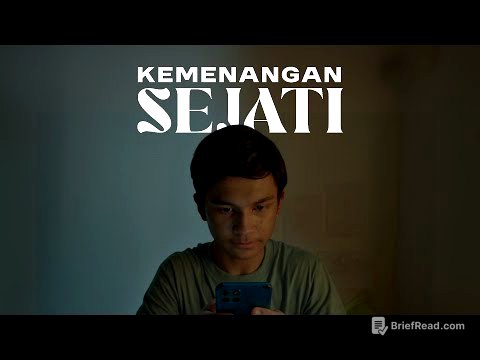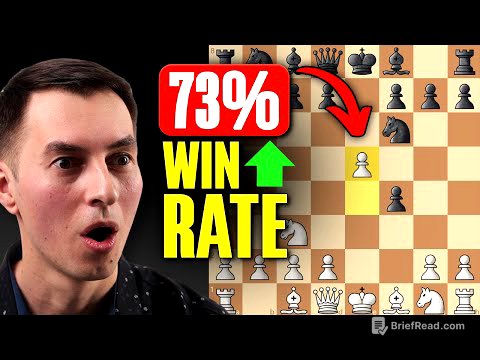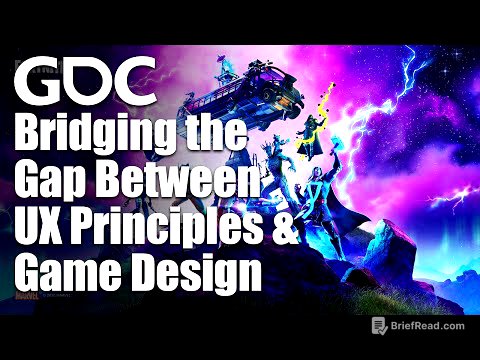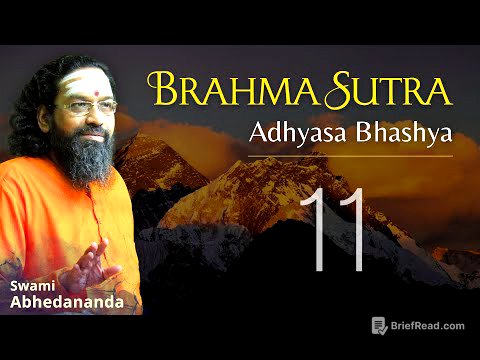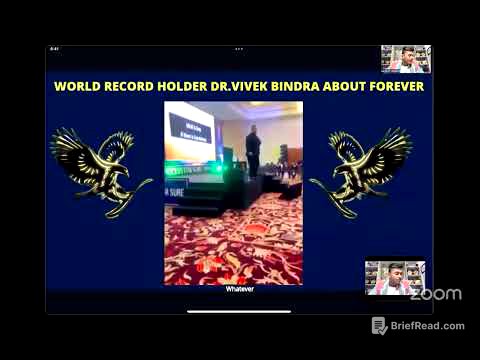TLDR;
This video introduces the concept of personal development for senior high school students. It emphasizes self-awareness, understanding oneself, and achieving personal growth. The video explores various theories from philosophers and psychologists like Socrates, Aristotle, Thomas Hobbes, Rene Descartes, Carl Rogers, Sigmund Freud, and Lao Tzu, focusing on self-concept, personality components (id, ego, superego), self-esteem, and self-efficacy. It also provides practical steps for rational decision-making and activities for self-reflection and family feedback.
- Personal development involves discovering oneself and realizing one's potential.
- Understanding oneself is crucial for personal growth and better relationships with others.
- Self-esteem and self-efficacy play significant roles in achieving goals and overall well-being.
- Rational decision-making involves a structured approach to problem-solving.
Introduction to Personal Development [0:53]
The host, Teacher Mark, introduces the show as a guide for senior high school students to become more self-aware and understand themselves and others better. He aims to guide viewers on a journey of personal empowerment, fostering positivity, self-confidence, self-motivation, and commitment to achieving life goals. The episode focuses on rediscovering oneself and reflecting on self-perception as young adolescents.
Defining Personal Development and Understanding Oneself [2:42]
Personal development, or self-development, is defined as the process of discovering oneself by realizing one's potential and capabilities over time, either through formal education or environmental factors. Examining one's reactions, beliefs, traits, and values is a crucial part of this process. The video references quotes from Socrates ("an unexamined life is not worth living") and Aristotle ("knowing yourself is the beginning of all wisdom") to emphasize the importance of self-knowledge.
Philosophical Perspectives on Knowing Oneself [3:56]
Thomas Hobbes believed that individuals could learn more by studying others through reading, but he emphasized that studying oneself is even more valuable. Knowing oneself leads to a better understanding of others. Other authors view "know thyself" as a moral and epistemological injunction, urging individuals to question and understand themselves deeply.
Rene Descartes and the Self-Concept Theory [4:58]
Rene Descartes proposed that a person's existence depends on their perception, with the mind being the seed of consciousness. Everything about ourselves, including identity, passion, interests, feelings, and intellect, originates from the mind. Carl Rogers' self-concept theory includes self-image (how you see yourself), self-esteem (how much you value yourself), and ideal self (how you wish you could be).
Sigmund Freud's Components of Personality [6:33]
Sigmund Freud proposed three components of personality: the id, ego, and superego. The id operates on the pleasure principle, seeking to satisfy desires without considering the situation. The ego, developed around age three, operates according to reality, helping the id to function in socially acceptable ways. The superego, which begins to manifest around age five, holds moral judgments and concepts of right and wrong acquired from family and the environment.
Eastern Philosophy on Self-Knowledge [9:31]
Lao Tzu stated that "knowing others is intelligence; knowing yourself is true wisdom. Mastering others is strength; mastering yourself is true power." This highlights the value of self-mastery and wisdom over mere intelligence and external power.
Adolescence and Self-Development [9:57]
Adolescence is a period of significant change, including physical appearance, social roles, decision-making, and self-perception. Experiences shape unique qualities and habits that define who we are. Characteristics are unique qualities, habits are repeated actions, and experiences are gained skills and knowledge.
Self-Esteem and Its Measurement [11:39]
Self-esteem is the evaluation of one's own worth, which can be positive or negative. Positive self-esteem leads to confidence, self-acceptance, and optimism. The video introduces the Rosenberg Self-Esteem Scale as a tool to measure self-esteem, providing instructions on how to score and interpret the results. Scores between 15 and 25 are within the normal range, while scores below 15 suggest low self-esteem.
Self-Efficacy and the Self as Social Actor, Motivated Agent, and Autobiographical Author [14:12]
Self-efficacy is the belief in one's ability to do something with their abilities. William James describes the self as what happens when we reflect upon ourselves. Dan McAdam categorizes the self into three categories: self as a social actor (portraying different roles for social acceptance), self as a motivated agent (acting based on dreams and goals), and self as an autobiographical author (creating one's own life story).
Rational Decision-Making [16:33]
Many people make decisions based on intuition and available information, which can be a hindrance. Bazerman and Moore suggest six steps for rational decision-making: define the problem, identify the criteria, weigh and rank the criteria, generate alternatives, rate each alternative on each criterion, and compute the optimal decision.
Family Feedback and Review of Key Concepts [18:46]
The video suggests an activity where family members write down an individual's strengths and weaknesses, as well as what makes them happy and angry, to provide feedback and promote self-awareness. The episode reviews key concepts, including quotes from Socrates, Freud's components of personality, Descartes' view on consciousness, self-esteem, self-efficacy, and the steps for rational decision-making.
Roadmap Activity and Final Thoughts [20:19]
The final activity involves creating a roadmap of the most important life events that have helped in self-discovery. Personal development is described as a continuous opportunity for self-improvement and attracting opportunities. The video concludes with a quote from Jim Rohn: "The major value in life is not what you get; the major value in life is what you become." Viewers are encouraged to share their unique characteristics, habits, and experiences on social media with the hashtag #mypdjourney and #deafbedtv.


